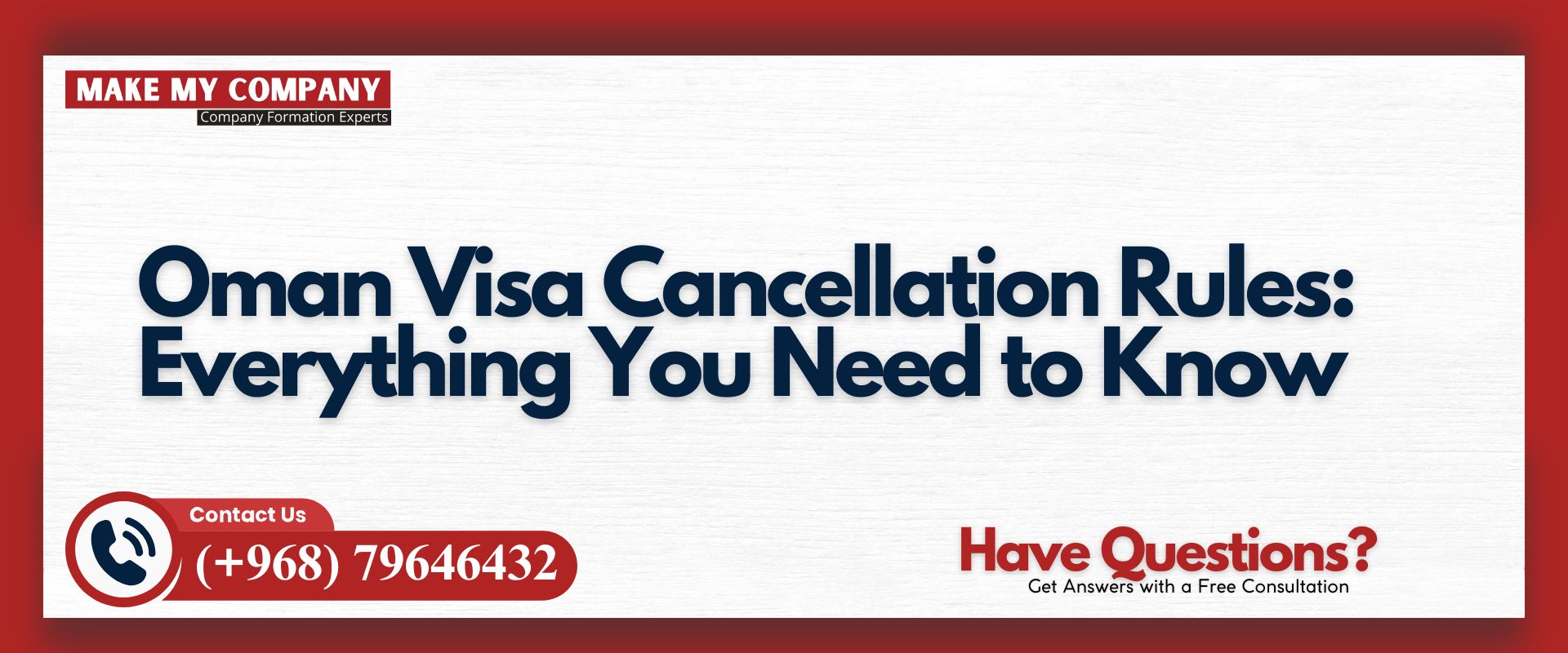Agriculture has always played a vital role in Oman’s economy. With vast stretches of fertile land, abundant water resources in some regions, and government incentives, Oman offers tremendous opportunities for entrepreneurs to invest in the agricultural sector. To start an Agricultural Business in Oman, obtaining an Agricultural License in Oman is a crucial first step. This comprehensive guide explains the steps, requirements, benefits, and more to help you navigate the process smoothly.
Table of Contents
What Is an Agricultural License?
An Agricultural License in Oman is an official document issued by the Omani government that grants individuals or companies the legal authority to engage in agricultural activities. This license ensures that agricultural businesses comply with national laws and regulations, promoting sustainable farming practices while safeguarding resources.
The agriculture license covers activities such as:
- Crop cultivation (vegetables, fruits, cereals, dates)
- Livestock farming (cattle, sheep, goats, camels, poultry)
- Aquaculture (fish farming, shrimp cultivation)
- Agricultural product trading (import and export of produce)
- Organic farming and greenhouse operations
- Dairy production and animal husbandry
- Beekeeping and honey production
- Plant nurseries and landscaping services
Without this license, engaging in agricultural operations in Oman is considered illegal. Licensing is also key to accessing government programs that support modern farming practices, encourage sustainable development, and enhance food security across the nation.
Types of Agricultural Licenses in Oman
Oman’s agricultural sector is diverse, and the type of farming license you require depends on the nature of your activities. Here are the main types of agricultural licenses:
Crop Farming License
This crop cultivation license allows the cultivation of crops such as vegetables, fruits, cereals, and dates. It’s ideal for businesses focusing on organic farming in Oman, greenhouse projects, hydroponic systems, or large-scale agricultural production to meet domestic and international demand. This license is essential for anyone planning commercial crop production.
Livestock Farming License
For those interested in raising animals such as cattle, sheep, goats, camels, or poultry, this livestock license is essential. It also covers dairy farming, meat production, wool processing, and animal breeding, enabling farmers to diversify their income streams. The Ministry of Agriculture, Fisheries and Water Resources (MAFWR) oversees livestock health and welfare standards.
Aquaculture License
This fish farming license is designed for businesses involved in fish farming, shrimp cultivation, oyster farming, and other aquaculture activities. Oman’s coastal regions provide ideal conditions for aquaculture ventures, making this license especially valuable for investors in fisheries. The license ensures compliance with marine environmental regulations.
Agricultural Trading License
If you plan to trade agricultural products whether locally or internationally this agricultural trading license is a must. It covers exporting and importing goods like seeds, fertilizers, pesticides, animal feed, and produce, ensuring compliance with trade regulations set by the Ministry of Commerce, Industry and Investment Promotion (MOCIIP).
Agro-Processing License
For businesses involved in the processing of agricultural products into value-added goods such as packaged foods, juices, dairy products, dates processing, and preserved foods, this agro-processing license is essential. It supports the growth of agro-industries, which are key to diversifying Oman’s economy under Vision 2040.
Greenhouse Farming License
This specialized license is for businesses operating greenhouse agriculture and controlled environment agriculture. It covers modern farming techniques including hydroponic systems, vertical farming, and climate-controlled cultivation facilities.
Legal Requirements for Obtaining an Agricultural License
To obtain an Agricultural License in Oman, you need to meet specific legal criteria. Below are the key requirements:
Business Registration
Register your agricultural company in Oman with the Ministry of Commerce, Industry and Investment Promotion (MOCIIP). This includes choosing a business structure (e.g., LLC, sole proprietorship, partnership) and obtaining a commercial registration certificate. Your business name must reflect agricultural activities and comply with Omani naming conventions.
Land Approval
Secure approval for land use from the Ministry of Agriculture, Fisheries and Water Resources (MAFWR). The land designated for agricultural purposes must comply with zoning laws and environmental regulations. You may need a lease agreement if you don’t own the land, and additional permissions might be required for irrigation systems, greenhouse development, or land reclamation projects.
Environmental Clearance
Submit an environmental impact assessment (EIA) report to the Environment Authority to ensure your operations do not harm the local ecosystem. This step is crucial for sustainable agricultural practices and involves consultations with environmental experts. The assessment evaluates water usage, waste management, chemical application, and biodiversity impact.
Health and Safety Compliance
Adhere to health and safety standards set by the Ministry of Agriculture, Fisheries and Water Resources (MAFWR). This includes proper waste management, safe use of chemicals and pesticides, and measures to prevent soil degradation or water pollution. Food safety standards must be maintained for produce intended for human consumption.
Specialized Permits
Depending on your activities, additional permits may be required, such as:
- Water usage permits for irrigation from the Ministry of Agriculture, Fisheries and Water Resources (MAFWR)
- Import/export permits for seeds, fertilizers, and agricultural equipment from MOCIIP
- Veterinary approvals for livestock farming from the Directorate General of Veterinary Services
- Fisheries permits for aquaculture projects from the Directorate General of Fisheries
- Pesticide registration and usage permits from MAFWR
- Organic certification for organic farming operations
- Food safety certificates from relevant authorities
Steps to Apply for an Agricultural License in Oman
Here’s a detailed step-by-step guide to obtaining your agriculture license:
Step 1: Conduct Feasibility Study
Before applying, conduct a comprehensive feasibility study that examines soil quality, water availability, market demand, and financial projections. This study will strengthen your application and help you make informed business decisions.
Step 2: Prepare Required Documents
Ensure you have the following:
- Commercial registration certificate from MOCIIP
- Valid passport copies and residence visa (for expatriates)
- Proof of land ownership or lease agreement
- Environmental clearance from the Environment Authority
- Detailed business plan or project proposal outlining your agricultural activities
- Technical specifications of farming equipment and infrastructure
- Water source documentation and irrigation plans
- Financial statements or bank guarantees demonstrating capital adequacy
Step 3: Submit Application to MAFWR
Apply through the Ministry of Agriculture, Fisheries and Water Resources (MAFWR). The application can be submitted online through their e-services portal or at their regional offices in Muscat, Salalah, Sohar, or other governorates, along with all necessary documents.
Step 4: Pay License Fees
Pay the applicable agricultural license fee. The amount varies based on the type of license and the scale of your project. Payment can be made online or at designated government service centers. Additional charges may apply for inspections, environmental assessments, and specialized permits.
Step 5: Site Inspection and Technical Evaluation
Officials from MAFWR will conduct a site inspection of the land, facilities, and proposed operations to ensure compliance with agricultural regulations. They will evaluate your readiness to start agricultural activities sustainably, assess water resources, examine soil quality, and verify infrastructure adequacy.
Step 6: Obtain Additional Approvals
If required, secure supplementary approvals from:
- Municipality for building permits and zoning compliance
- Royal Oman Police for security clearances (for certain locations)
- Oman Chamber of Commerce and Industry (OCCI) for business registration
- Public Authority for Water (Diam) for water extraction permits
Step 7: Receive Your Agricultural License
Once approved, your agriculture license will be issued by MAFWR, allowing you to commence agricultural activities legally. The license will specify permitted activities, land location, validity period, and compliance conditions. Retain all related documents for audits, renewals, and banking purposes.
Step 8: Register for Tax and VAT
Register your agricultural business with the Oman Tax Authority (OTA) for tax purposes. While agricultural activities may enjoy certain tax exemptions, registration ensures compliance with Omani tax law and facilitates access to government support programs.
Documents Required for Agricultural License in Oman
Comprehensive documentation is essential for a smooth application process. Here’s what you need:
For Individual Applicants:
- Valid passport with residence visa
- Civil ID or national identification
- Personal bank statements
For Company Applications:
- Commercial registration from MOCIIP
- Memorandum and Articles of Association
- Shareholder and director identification documents
- Company bank account details
Land and Property Documents:
- Land ownership deed or lease agreement
- Land survey report and coordinates
- Municipality zoning approval
- Property registration certificate
Technical and Operational Documents:
- Comprehensive agricultural business plan
- Crop cultivation schedule or livestock management plan
- Water source approval from Public Authority for Water (Diam)
- Irrigation system specifications
- Equipment and machinery list
- Storage and processing facility plans (if applicable)
Environmental and Safety Documents:
- Environmental Impact Assessment from Environment Authority
- Waste management and disposal plan
- Pesticide and chemical usage protocols
- Soil testing reports
- Water quality test results
Financial Documents:
- Project cost estimates and budget
- Financial feasibility study
- Bank guarantee or capital proof
- Insurance certificates (crop insurance, liability insurance)
Specialized Documents (Activity-Dependent):
- Veterinary health certificates for livestock
- Aquaculture facility design for fish farming
- Organic certification documents for organic farming
- Food safety compliance certificates
- Export/import licenses if applicable
Cost of Agricultural License in Oman
The cost of obtaining an Agricultural License in Oman varies based on several factors, including the type of license, the scale of the proposed agricultural activities, and any additional permits required. Here’s a detailed breakdown of typical costs:
Application Fees
The agriculture license application fee typically ranges between OMR 50 and OMR 150, depending on the specific type of license and business structure. Sole proprietorships generally have lower fees than corporate entities.
Inspection Charges
The MAFWR charges inspection fees, which can range from OMR 100 to OMR 300, based on the scale and complexity of the project. Large-scale farming operations or aquaculture facilities may incur higher inspection costs due to extensive site evaluations.
Environmental Clearance Costs
For businesses requiring an Environmental Impact Assessment (EIA) from the Environment Authority, costs typically range from OMR 200 to OMR 500, depending on the environmental impact of the activities. Complex projects affecting sensitive ecosystems may require more expensive assessments.
Land and Property Costs
- Land lease fees: OMR 500 to OMR 2,000 annually (depending on location and size)
- Municipality building permits: OMR 100 to OMR 500
- Property registration: OMR 50 to OMR 200
Specialized Permits
- Water usage permits from Public Authority for Water (Diam): OMR 50 to OMR 300
- Import/export permits from MOCIIP: OMR 50 to OMR 200 each
- Veterinary approvals from Directorate General of Veterinary Services: OMR 100 to OMR 250
- Pesticide registration: OMR 50 to OMR 150
- Organic certification: OMR 300 to OMR 800 (from approved certifying bodies)
Professional Service Fees
- Business consultancy services: OMR 500 to OMR 1,500
- Legal document preparation: OMR 200 to OMR 600
- Environmental consultant fees: OMR 300 to OMR 1,000
- Agricultural engineer consultation: OMR 200 to OMR 500
Renewal Fees
Annual renewal fees for an agricultural license are generally between OMR 50 and OMR 100, ensuring continued compliance with regulations. Timely renewal prevents operational disruptions and maintains eligibility for government subsidies.
Total Estimated Cost
For a small to medium agricultural business, total setup costs typically range from OMR 2,000 to OMR 8,000. Large-scale commercial farming operations may require investments exceeding OMR 10,000 when including infrastructure, equipment, and comprehensive permitting.
Benefits of an Agricultural License in Oman
Obtaining an Agricultural License in Oman comes with numerous advantages that support business growth and sustainability:
Legal Protection and Authorization
A valid farming license ensures your agricultural business operates within the legal framework, protecting you from fines, penalties, or forced closure. It also simplifies dispute resolution with government bodies, suppliers, or third parties.
Access to Government Incentives and Subsidies
Licensed businesses are eligible for government subsidies, low-interest loans through the Oman Development Bank, and tax exemptions. These financial incentives can significantly reduce operational costs and increase profitability. The MAFWR offers support programs for irrigation systems, greenhouse construction, and modern farming equipment.
Market Credibility and Trust
A licensed agricultural company builds trust among suppliers, customers, and investors, enhancing your reputation in the market. This credibility helps attract partnerships, secure contracts with retailers and distributors, and facilitates access to agricultural exhibitions and trade shows.
Export Opportunities
With the right permits from MOCIIP, you can tap into international markets, boosting revenue and brand visibility. Oman’s free trade agreements with GCC countries, India, and other nations further simplify the export process for licensed agricultural businesses. Agricultural exports contribute to Oman’s economic diversification goals.
Banking and Financial Services
Licensed agricultural businesses can open corporate bank accounts, access agricultural loans, obtain crop insurance, and benefit from special financing programs offered by Omani banks. Financial institutions require valid licensing before extending credit facilities.
Sustainability Support and Training
The MAFWR provides training programs, technical resources, and technological support for licensed businesses to adopt sustainable farming practices. These initiatives ensure long-term growth, resource conservation, and compliance with environmental standards. Farmers receive guidance on water conservation, integrated pest management, and soil health improvement.
Expansion and Diversification Opportunities
With a valid agriculture license, you can scale your operations, diversify activities into value-added processing, and explore innovative agricultural techniques such as hydroponics, aquaponics, vertical farming, and precision agriculture using IoT sensors and drones.
Participation in Government Procurement
Licensed agricultural businesses can supply products to government institutions, schools, hospitals, and military facilities through official procurement channels. This provides stable revenue streams and long-term contracts.
Intellectual Property Protection
Licensed businesses can register proprietary farming techniques, seed varieties, and agricultural innovations, protecting their intellectual property under Omani law.
Access to Research and Development
Partnerships with agricultural research institutions, universities, and the MAFWR research centers provide access to improved seed varieties, modern farming techniques, and scientific expertise.
Agricultural License Renewal in Oman
Your agricultural license requires annual renewal to maintain legal compliance and operational authorization.
Renewal Process
Submit your renewal application to MAFWR at least 30 days before expiration. The renewal requires updated documentation including:
- Current business registration from MOCIIP
- Proof of ongoing compliance with environmental standards
- Tax clearance certificate from Oman Tax Authority (OTA)
- OCCI membership renewal
- Updated land lease or ownership documents
- Production reports and farming activity logs
Renewal Inspection
MAFWR officials may conduct site inspections during the renewal process to verify continued compliance with agricultural standards, environmental regulations, and safety protocols. They assess crop health, livestock welfare, water management practices, and waste disposal systems.
Renewal Fees and Timeline
Pay the annual renewal fee of OMR 50 to OMR 100 depending on your license type. Processing typically takes 7-14 business days with complete documentation. Late renewals incur penalty fees of OMR 20 to OMR 50 and may result in operational suspension.
Compliance Requirements
Maintain proper records including:
- Agricultural production logs
- Chemical and pesticide usage records
- Water consumption reports
- Employee health and safety documentation
- Financial statements and tax filings
- Environmental monitoring reports
Challenges in Obtaining an Agricultural License
Although the process is structured, there are challenges to consider:
Complex Regulatory Framework
Navigating the legal requirements across multiple government authorities including MAFWR, MOCIIP, Environment Authority, and Public Authority for Water (Diam) can be complex without professional guidance. The numerous documents and approvals required may lead to delays if not handled correctly.
Initial Capital Investment
The costs of land acquisition or leasing, environmental assessments, infrastructure development, equipment purchase, and license fees can be substantial, especially for small businesses. Budgeting carefully is essential to avoid financial strain. Agricultural startups may require OMR 20,000 to OMR 100,000 in initial investment.
Environmental Compliance Requirements
Strict compliance with environmental regulations from the Environment Authority requires continuous monitoring. Regular soil testing, water quality assessments, and waste management audits can be time-consuming and require dedicated resources and technical expertise.
Water Scarcity Issues
Oman faces water scarcity challenges, making water permits from Public Authority for Water (Diam) critical. Demonstrating efficient irrigation systems and water conservation measures is essential for license approval.
Market Competition
The agricultural sector in Oman is competitive, with both local and international players. A solid business plan, market research, and differentiation strategy are crucial for success. Understanding consumer preferences for organic produce, locally grown foods, and sustainable farming helps position your business effectively.
Technical Expertise Requirements
Modern agricultural operations require knowledge of agricultural science, crop management, pest control, irrigation technology, and business management. Lack of technical expertise can hinder productivity and compliance.
Climate and Environmental Factors
Oman’s hot climate, limited rainfall, and soil salinity in coastal areas pose agricultural challenges. Selecting appropriate crops, implementing climate-adapted farming techniques, and investing in greenhouse technology may be necessary.
Seeking assistance from agricultural business consultants or business setup companies in Oman can help overcome these hurdles and streamline the licensing process.
Government Support for Agricultural Business in Oman
The Omani government actively supports agricultural development through various initiatives:
Financial Support Programs
- Agricultural subsidies for seeds, fertilizers, and equipment
- Low-interest loans through Oman Development Bank
- Grants for agricultural research and innovation
- Tax exemptions for certain agricultural activities
- Free land allocation in designated agricultural zones
Technical Assistance
- Training programs on modern farming techniques
- Agricultural extension services providing field support
- Research and development collaboration opportunities
- Technology transfer programs introducing advanced agricultural systems
- Veterinary services and animal health support
Infrastructure Development
- Irrigation network development in agricultural areas
- Rural road construction improving market access
- Cold storage facilities for produce preservation
- Agricultural markets and trading centers
- Water desalination projects for agricultural use
Vision 2040 Agricultural Goals
Oman’s Vision 2040 emphasizes food security, sustainable agriculture, and agricultural self-sufficiency. The government aims to increase agricultural GDP contribution, reduce food imports, promote organic farming, and enhance fisheries production.
Why Invest in Agricultural Business in Oman?
The Agricultural Business in Oman offers immense potential due to:
- Government initiatives promoting food security and sustainable development under Vision 2040
- Growing demand for organic produce, locally grown foods, and premium agricultural products domestically and internationally
- Availability of arable land and water resources, supported by advanced irrigation systems and water conservation technologies
- Favorable investment policies for agricultural trade including tax exemptions, customs duty waivers, and reduced tariffs
- Opportunities to explore innovative techniques such as hydroponics in Oman, aquaponics, vertical farming, and precision agriculture
- Strategic location providing access to GCC markets, East African markets, and Asian markets
- 100% foreign ownership permitted in many agricultural activities
- Strong export potential for dates, fish, vegetables, and livestock products
- Government support through MAFWR programs, subsidies, and technical assistance
- Increasing consumer awareness about sustainable farming and food quality
With strategic planning and a valid agriculture license, entrepreneurs can thrive in this sector. Oman’s commitment to modernizing agriculture ensures a promising future for investors.
Conclusion
Navigating the agricultural licensing process requires expertise in dealing with multiple government authorities and understanding complex regulatory requirements. This is where professional assistance makes a significant difference.
Make My Company specializes in providing end-to-end agricultural business setup services in Oman. Our experienced team understands the intricacies of working with the Ministry of Agriculture, Fisheries and Water Resources (MAFWR), Ministry of Commerce, Industry and Investment Promotion (MOCIIP), Environment Authority, Public Authority for Water (Diam), and other relevant government bodies.









